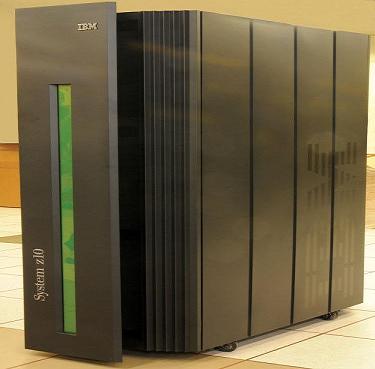| |
Distributed Computing
Distributed computing is a field of computer science that
studies distributed systems. A distributed system is a software system
in which components located on networked computers communicate and
coordinate their actions by passing messages. The components interact
with each other in order to achieve a common goal. Three significant
characteristics of distributed systems are: concurrency of components,
lack of a global clock, and independent failure of components. Examples
of distributed systems vary from SOA-based systems to massively
multiplayer online games to peer-to-peer applications.

Reasons for using distributed systems and distributed computing may include:
The very nature of an application may require the use of a
communication network that connects several computers: for example,
data produced in one physical location and required in another location.
There are many cases in which the use of a single computer
would be possible in principle, but the use of a distributed system is
beneficial for practical reasons. For example, it may be more
cost-efficient to obtain the desired level of performance by using a
cluster of several low-end computers, in comparison with a single
high-end computer. A distributed system can provide more reliability
than a non-distributed system, as there is no single point of failure.
Moreover, a distributed system may be easier to expand and manage than
a monolithic uniprocessor system.
Read more at Wikipedia
Concepts and Planning
What is distributed computing
A distributed computer system consists of multiple software
components that are on multiple computers, but run as a single system.
The computers that are in a distributed system can be physically close
together and connected by a local network, or they can be
geographically distant and connected by a wide area network. A
distributed system can consist of any number of possible
configurations, such as mainframes, personal computers, workstations,
minicomputers, and so on. The goal of distributed computing is to make
such a network work as a single computer.
Distributed systems offer many benefits over centralized systems, including the following:
Scalability
The system can easily be expanded by adding more machines as needed.
Redundancy
Several machines can provide the same services, so if one is
unavailable, work does not stop. Additionally, because many smaller
machines can be used, this redundancy does not need to be prohibitively
expensive.
Distributed computing systems can run on hardware that is
provided by many vendors, and can use a variety of standards-based
software components. Such systems are independent of the underlying
software. They can run on various operating systems, and can use
various communications protocols. Some hardware might use UNIX(R) as
the operating system, while other hardware might use Windows operating
systems. For intermachine communications, this hardware can use SNA or
TCP/IP on Ethernet or Token Ring.
Read more at IBM
Google search for Distributed Computing
|
|
Sponsored by
Software Diversified Services™


IBM z10
Home Page
CICS
COBOL
Dictionary
Hints / Tips
Internet
History
Mainframe Videos
Manuals
Programming
Programs
System z Academic Initiative
Sitemap
|





 Software Diversified Services, Minneapolis, MN USA
Software Diversified Services, Minneapolis, MN USA